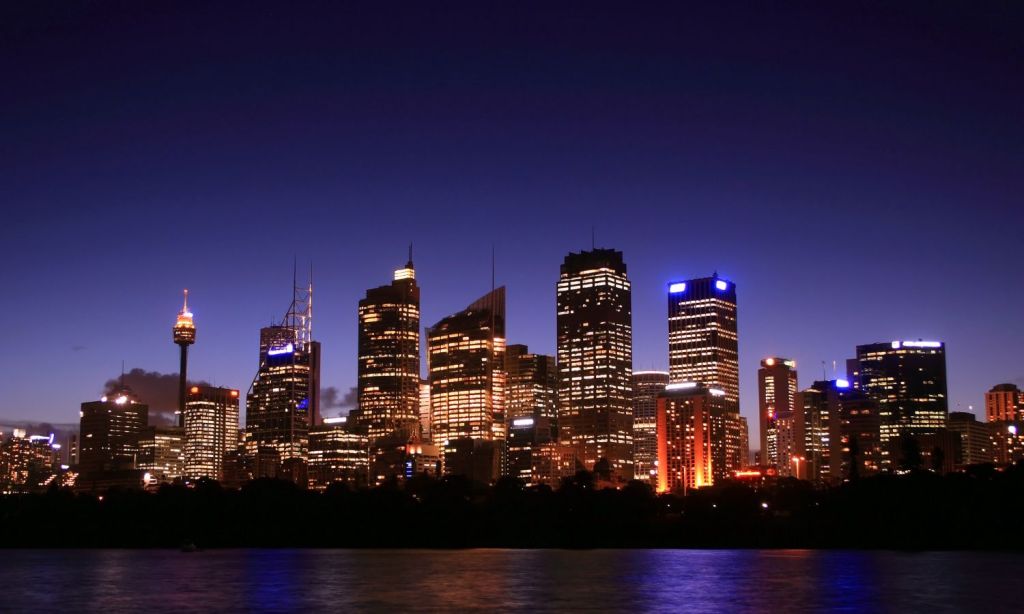The NSW government is showing it’s committed to shedding its “nanny state” reputation but is it doing enough? Or worse, is it too late? These are questions on my mind after the state government announced on August 14 that it would soon introduce a second round of reforms designed to boost the city’s nighttime economy.
This round of reforms includes lifting a ban on standing while sipping a drink on NSW streets outside the venue. The COVID-era law stated patrons had to be seated while drinking on footpaths outside pubs, restaurants and cafés. NSW premier Chris Minns called the rule “useless”, adding that it was “destroying” venues.
“For too long Sydney’s nightlife has been strangled by red tape,” said Minns on August 14 in a NSW government release. “Having an economy that fires up at 5pm during the week is critical for global cities like Sydney.”
Minister for music and the night-time economy John Graham added: “A blanket ban on standing with a drink in hand is a red tape hangover that has no place in 2024. Adults should be trusted to choose whether they stand or sit while having a drink.”
Sydney’s nightlife economy generates more than $4.7 billion in revenue annually with more than 5,900 businesses employing more than 34,000 people, reports City of Sydney as of writing this.
Steven Speed, owner of Sydney’s oldest pub Fortune of War and chair of the Sydney City Liquor Accord says reversing the ban on standing won’t affect his venue too much as it has live entertainment. Drinking while sitting and listening is more suited to it anyway. Fortune of War is among the 145 licensed venues around Sydney the rule affected.
“It’s a step in the right direction as long as the left of government is talking to the right,” he says. “Hospitality operators across Sydney are the best they have been for decades. We can bring people back out to enjoy the diverse variety of experiences but we need to get people back home safely. Public transport needs to align otherwise it will not work.”
Speed says Sydneysiders need the confidence they can get home safely at any time of day or night. He suggests trains and light rail should run 24 hours in the CBD. As for what patrons can do to help bring back nightlife, Speed suggests they behave themselves.
“Be accountable for your actions,” he says. “We will get one shot at this. If assaults and violence go up from people being idiots, it will ruin it for everyone and they will only have themselves to blame.”
In October 2023, the NSW government announced a six-pronged plan to revitalise Sydney nightlife. It included reforms and new frameworks like incentivising live music venues, relaxing red tape around al fresco dining and introducing more areas in the Purple Flag Program.
Like beachgoers relying on red and yellow flags to find safe swim spots, the Purple Flag helps guide to well-managed but fun nightlife areas. It was introduced to Sydney in 2023 with YCK (York, Clarence and Kent Street) Laneways in the CBD the first precinct in the initiative. Other Purple Flag areas are Parramatta CBD, Haldon Street in Lakemba and Illawarra and Marrickville Road in Marrickville.
October 2023’s reform made temporary outdoor dining permanent, ended single neighbour noise complaints against local pubs and other licensed venues and made it easier to activate streets for festivals and events, among other things.
“This is a clear statement of intent from the State Government that the nighttime economy matters,” said night-time industries association CEO Mick Gibb at the time.
“If NSW is going to realise the full potential of these reforms, we need local governments to get behind the suite of options at their disposal. By creating vibrant, diverse and safe Special Entertainment Precincts, a local council can shape the type of nighttime ecosystem it wants to create for its community.”
The way I see it: there are too many cooks in the kitchen. The cooks include the local councils, NSW government, businesses and community members. Imagine what would happen if the local and state government, businesses and the community came together to work toward revitalising Sydney nightlife. What if they all got on the same page? Or at least the same chapter?
There’s a lingering public perception that nightlife equates to more noise, more feeling unsafe and more public disorder. Understandable considering for many Sydneysiders, me included, the tragic death of Thomas Kelly in 2012 and Daniel Christie in 2013 from one random punch in Kings Cross late-night is cemented in our minds.
That said all the cooks need to understand the economic impact of Sydney having a thriving nightlife economy. And, as Speed says, they also need to behave themselves.
Related: Chicken Schnitty Aside, Australia Doesn’t Have Much German Food
Related: Australian Restaurants Are Saying Benvenuta to This Italian Dessert
Read more stories from The Latch and subscribe to our email newsletter.

